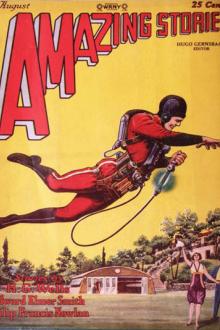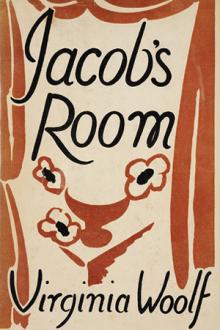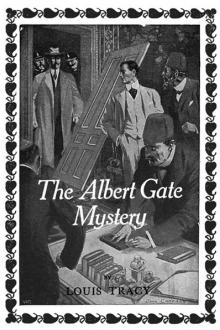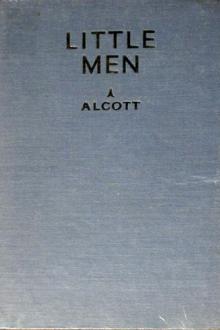Genre Fiction. Page - 268

as in it nothing that is morally obligatory. Is not that the idea that you intended to convey?" he asked the lady.
The lady, with a nod of her head, expressed her approval of this translation of her thoughts.
"Then," resumed the lawyer, continuing his remarks.
But the nervous gentleman, evidently scarcely able to contain himself, without allowing the lawyer to finish, asked:
"Yes, sir. But what are we to understand by this love that alone consecrates marriage?"
"Everybody knows what love is," said the lady.
"But I don't know, and I should like to know how you define it."
"How? It is very simple," said the lady.
And she seemed thoughtful, and then said:
"Love . . . love . . . is a preference for one man or one woman to the exclusion of all others. . . ."
"A preference for how long? . . . For a month, two days, or half an hour?" said the nervous gentleman, with special irritation.
"No, permit me, you evidently are not talking of the sa

are as much concerned as I; therefore, I propose that we should contrive measures and act in concert: communicate to me what you think the likeliest way to mortify her, while I, on my side, will inform you what my desire of revenge shall suggest to me." After this wicked agreement, the two sisters saw each other frequently, and consulted how they might disturb and interrupt the happiness of the queen. They proposed a great many ways, but in deliberating about the manner of executing them, found so many difficulties that they durst not attempt them. In the meantime, with a detestable dissimulation, they often went together to make her visits, and every time showed her all the marks of affection they could devise, to persuade her how overjoyed they were to have a sister raised to so high a fortune. The queen, on her part, constantly received them with all the demonstrations of esteem they could expect from so near a relative. Some time after her marriage, the expected birth of an heir gave great joy to the que

d. You may look in Browne Faber's book, if you like, and you will find that to the present day men of science are unable to account for the presence, or to specify the functions of a certain group of nerve-cells in the brain. That group is, as it were, land to let, a mere waste place for fanciful theories. I am not in the position of Browne Faber and the specialists, I am perfectly instructed as to the possible functions of those nerve-centers in the scheme of things. With a touch I can bring them into play, with a touch, I say, I can set free the current, with a touch I can complete the communication between this world of sense and--we shall be able to finish the sentence later on. Yes, the knife is necessary; but think what that knife will effect. It will level utterly the solid wall of sense, and probably, for the first time since man was made, a spirit will gaze on a spirit-world. Clarke, Mary will see the god Pan!"
"But you remember what you wrote to me? I thought it would be requisite that she--"

The old Rebel cursed. "Gehenna of a big crop; we're up to our necks in melons. This time next year we'll be washing our feet in brandy."
"Hold onto it and age it; you ought to see what they charge for a drink of Poictesme brandy on Terra."
"This isn't Terra, and we aren't selling it by the drink," Colonel Zareff said. "We're selling it at Storisende Spaceport, for what the freighter captains pay us. You've been away too long, Conn. You've forgotten what it's like to live in a poor-house."
The cargo was coming off, now. Cask staves, and more cask staves. Zareff swore bitterly at the sight, and then they started toward the wide doors of the shipping floor, inside the Airlines Building. Outgoing cargo was beginning to come out; casks of brandy, of course, and a lot of boxes and crates, painted light blue and bearing the yellow trefoil of the Third Fleet-Army Force and the eight-pointed red star of Ordnance. Cases of rifles; square boxes of ammunition; crated auto-cannon. Conn turned to hi

he worked it to make us think him a nut. He certainly is clever. I take off my hat to him--he's a wonder!"
"And what is your idea? Where do we come in?"
"You come in by getting that solution away from Seaton and Crane, and furnishing the money to develop the stuff and to build, under my direction, such a power-plant as the world never saw before."
"Why get that particular solution? Couldn't we buy up some platinum wastes and refine them?"
"Not a chance," replied the scientist. "We have refined platinum residues for years, and never found anything like that before. It is my idea that the stuff, whatever it is, was present in some particular lot of platinum in considerable quantities as an impurity. Seaton hasn't all of it there is in the world, of course, but the chance of finding any more of it without knowing exactly what it is or how it reacts is extremely slight. Besides, we must have exclusive control. How could we make any money out of it if Crane operates a rival company and

fall and possible demise-- for where was he? what was he? Shading her eyes, she looked along the road for Captain Barfoot--yes, there he was, punctual as ever; the attentions of the Captain--all ripened Betty Flanders, enlarged her figure, tinged her face with jollity, and flooded her eyes for no reason that any one could see perhaps three times a day.
True, there's no harm in crying for one's husband, and the tombstone, though plain, was a solid piece of work, and on summer's days when the widow brought her boys to stand there one felt kindly towards her. Hats were raised higher than usual; wives tugged their husbands' arms. Seabrook lay six foot beneath, dead these many years; enclosed in three shells; the crevices sealed with lead, so that, had earth and wood been glass, doubtless his very face lay visible beneath, the face of a young man whiskered, shapely, who had gone out duck-shooting and refused to change his boots.
"Merchant of this city," the tombstone said; though why Betty Flanders h

s going on," I said, "and I am busy. Could you perhaps come another day?"
At once he turned to go; but as he reached the door he hesitated, and said: "May I not see the little one, sir, for a moment?" It was his belief that Mini was still the same. He had pictured her running to him as she used, calling "O Cabuliwallah! Cabuliwallah!" He had imagined too that they would laugh and talk together, just as of old. In fact, in memory of former days he had brought, carefully wrapped up in paper, a few almonds and raisins and grapes, obtained somehow from a countryman; for his own little fund was dispersed.
I said again: "There is a ceremony in the house, and you will not be able to see any one to-day."
The man's face fell. He looked wistfully at me for a moment, then said "Good morning," and went out.
I felt a little sorry, and would have called him back, but I found he was returning of his own accord. He came close up to me holding out his offerings with the words: "I brought these few

most remarkable affair I have ever been engaged in. That pleases me. Pheasant-shooting is a serious business, governed by the calendar and arranged by the head-keeper."
An electric bell summoned Smith. The barrister handed him the telegram and a sovereign.
"Read that message," he said. "Ponder over it. Send it, and give the change of the sovereign to Mrs. Smith's brother, with my compliments and regrets."
CHAPTER II
MEHEMET ALI'S NOTE
Then he turned to Lord Fairholme.
"Just one question," he said, "before I send you off to bed. No, you must not protest. I want you to meet me here this evening at seven, with your brain clear and your nerves restored by a good, sound sleep. We will dine, here or elsewhere, and act subsequently. But at this moment I want to know the name of the person most readily accessible who can tell me all about Mr. Talbot's connection with the Sultan's agent."
"His sister, undoubt

dently schoolrooms, for desks, maps, blackboards, and books were scattered about. An open fire burned on the hearth, and several indolent lads lay on their backs before it, discussing a new cricket-ground, with such animation that their boots waved in the air. A tall youth was practising on the flute in one corner, quite undisturbed by the racket all about him. Two or three others were jumping over the desks, pausing, now and then, to get their breath and laugh at the droll sketches of a little wag who was caricaturing the whole household on a blackboard.
In the room on the left a long supper-table was seen, set forth with great pitchers of new milk, piles of brown and white bread, and perfect stacks of the shiny gingerbread so dear to boyish souls. A flavor of toast was in the air, also suggestions of baked apples, very tantalizing to one hungry little nose and stomach.
The hall, however, presented the most inviting prospect of all, for a brisk game of tag was going on in the upper entry. One l

r, so that the little body presented a shapelessappearance, as, with its small feet shod in thick, nailedmountain-shoes, it slowly and laboriously plodded its way up inthe heat. The two must have left the valley a good hour's walkbehind them, when they came to the hamlet known as Dorfli, whichis situated half-way up the mountain. Here the wayfarers met withgreetings from all sides, some calling to them from windows, somefrom open doors, others from outside, for the elder girl was nowin her old home. She did not, however, pause in her walk torespond to her friends' welcoming cries and questions, but passedon without stopping for a moment until she reached the last ofthe scattered houses of the hamlet. Here a voice called to herfrom the door: "Wait a moment, Dete; if you are going up higher,I will come with you."
The girl thus addressed stood still, and the child immediatelylet go her hand and seated herself on the ground.
"Are you tired, Heidi?" asked her companion.
"No, I am hot," answe